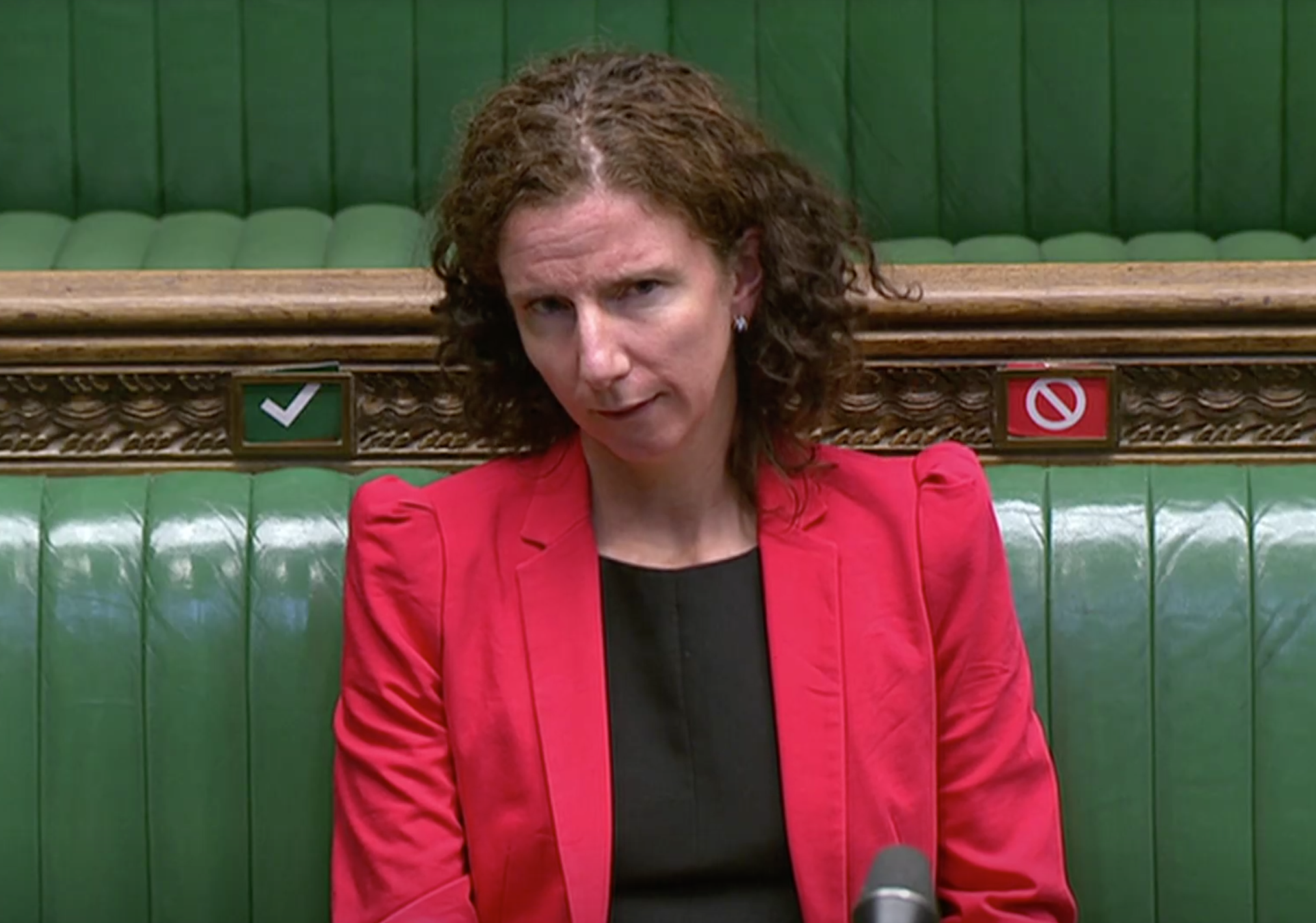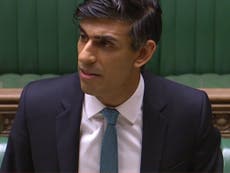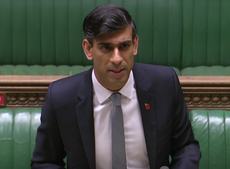Rishi Sunak has left little space for the Labour Party to oppose his spending plans
By exempting lower-paid workers from the public sector pay freeze, the chancellor has taken some of the sting out of Labour’s opposition, writes John Rentoul


There were only two savings in Rishi Sunak’s spending plans for next year: a pay freeze for better-paid public sector workers outside the NHS; and a cut in the foreign aid budget. All the rest was spend, spend, spend with only the vaguest promise of a return to “fiscal sustainability” when the economy recovers.
This put Labour in a difficult position. The chancellor, having spent more this year than even Jeremy Corbyn and John McDonnell could have imagined was possible, is proposing to increase public spending further next year. Not only that, but he is doing so in ways that you could imagine a Labour chancellor doing. By exempting lower-paid workers from the public sector pay freeze, he has taken some of the sting out of Labour’s opposition.
All the same, Keir Starmer, the Labour leader, and Anneliese Dodds, the shadow chancellor, could hardly support the freeze, which means that they have finally stepped across the line of advocating even higher spending than the government. But they have done it as tentatively as they possibly can.
The only other saving Sunak announced was the cut in foreign aid. Dodds made little of it in her response to Sunak, accusing him briefly of “turning his back on the world’s poorest”, and ingeniously saying that many British businesses have condemned it because “it’s in Britain’s national interest to lay the foundations for economic growth across the world”.
She and Starmer are keen to distance themselves from the idea that Labour’s solution to every problem is to spend more public money – and yet, despite opposing a chancellor and a prime minister whose solution to every problem is to spend more public money, they are now demanding that the government spend even more.
That is why Starmer devoted his questions to Boris Johnson to a close textual analysis of the ministerial code. This was surprisingly successful, because the prime minister responded to a question about the bullying allegations against Priti Patel, the home secretary, by saying it was a disgrace that Jeremy Corbyn’s Labour membership had been restored.
This allowed Starmer to do a minor-key version of Tony Blair’s line against John Major in 1995, when Blair said: “I lead my party; he follows his.” Starmer said: “The difference, of course, is that I am tackling the issues in my party and the prime minister is running away from the issues in his.”
The Labour leader did urge Johnson to give public sector workers “the pay rise they so obviously deserve”, but he prefaced it with telling the prime minister to “get his priorities right” and to “stop wasting public money” – as if reordering priorities and ending waste might provide the funds.
Dodds did the same in her response to the chancellor’s statement, criticising the waste and cronyism of spending on personal protective equipment, and the £12bn spent on NHS Test and Trace, which is “still not working”.
Hers was an odd response, because her argument against the pay freeze switched suddenly from how much they deserved it to how much the economy needs “firefighters, police officers and teachers” to spend more on our high streets. There may be a big argument to be made for the government to borrow even more than it is already planning to borrow: interest rates are low, so although the quantity of debt is historically vast, the cost of repayments is surprisingly modest, and can be locked in for a decade and a half. Economists such as Jonathan Portes argue that it is a mistake to worry about debt/deficit levels when the private sector isn’t investing.
But Starmer and Dodds are cautious about making the argument because they fear it makes them look fiscally incontinent. And as long as Sunak adopts such a “Labour” stance on spending, he leaves little space for the opposition. Especially when his main “non-Labour” policy is to cut foreign aid – a policy that is popular with the voters and which is most vocally opposed from within the Conservative Party.


Join our commenting forum
Join thought-provoking conversations, follow other Independent readers and see their replies
Comments